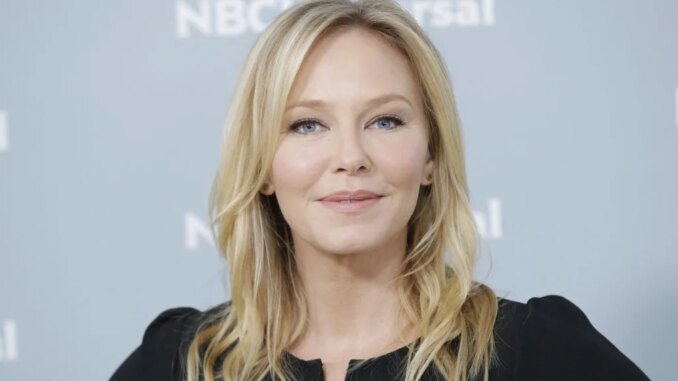
Okay, let’s craft an illustrative essay exploring the circumstances surrounding Kelli Giddish’s departure from Law & Order: Special Victims Unit. I’ll aim to present a balanced perspective, drawing upon available reports and fan discussions, while acknowledging the inherent limitations of fully knowing “the full truth behind the scenes.”
Why Did Kelli Giddish Leave SVU? The Full Truth Behind the Scenes
For twelve seasons, Detective Amanda Rollins, portrayed by Kelli Giddish, captivated audiences of Law & Order: Special Victims Unit. Her journey, marked by personal struggles, professional growth, and a fierce dedication to survivors, resonated deeply. Thus, the announcement of her departure in 2022 sent shockwaves through the SVU fandom. While the on-screen exit was neatly tied with a marriage to ADA Sonny Carisi, the real-life reasons behind Giddish’s exit are more complex and layered, a blend of network decisions, creative direction, and potentially, internal dynamics.
One of the most prominent narratives surrounding Giddish’s departure centered on NBC’s cost-cutting measures and a desire for a creative refresh. SVU, while a ratings juggernaut, is a long-running show with significant production costs. Actors’ salaries, especially for seasoned cast members, contribute significantly to the budget. Reports suggested that Giddish’s contract renewal negotiations coincided with a network directive to streamline expenses. Replacing a lead actress with a less expensive performer, or shifting the narrative focus to other characters, could have been seen as a viable financial strategy. This aligns with the common practice in long-running television series where cast changes are sometimes implemented to revitalize the show and manage budgets.
The “creative refresh” angle is closely tied to this economic rationale. After two decades on the air, maintaining audience engagement requires injecting fresh perspectives and storylines. While Rollins was a beloved character, some argued that her arc had plateaued. Introducing new characters or re-emphasizing existing ones like Captain Benson (Mariska Hargitay) could be seen as a way to reinvigorate the show’s narrative. The decision to marry Rollins and Carisi, while satisfying for some viewers, could also be interpreted as a way to provide a definitive ending to her character’s primary storylines, making her departure less jarring.
However, the narrative isn’t solely about budget cuts and creative strategy. Rumors swirled concerning potential conflicts behind the scenes. While concrete details remain elusive, some reports alluded to disagreements about the direction of Rollins’ character or friction with other members of the cast or crew. It’s important to acknowledge that these are largely speculative, fueled by social media whispers and the inherent opacity of Hollywood production. The entertainment industry is known for its intense pressures and complex interpersonal dynamics, and it’s not uncommon for disagreements to arise, potentially contributing to an actor’s decision to leave a show.
Adding another layer to the situation is the possibility of Giddish’s own aspirations and career goals. After twelve years of playing Amanda Rollins, she may have felt a desire to explore new roles and challenges. Actors often seek diverse experiences to avoid being typecast and to further develop their craft. Leaving a successful, long-running show, while a risk, can open doors to new opportunities in film, television, or theater. Giddish’s subsequent roles after leaving SVU suggest a desire to broaden her acting repertoire.
Finally, it’s crucial to consider the impact of social media and fan reactions on the narrative surrounding Giddish’s departure. The intense outpouring of disappointment and anger from fans amplified the sense of injustice and fueled speculation about the “real” reasons behind her exit. Social media provides a platform for fans to voice their opinions and share rumors, which can then be picked up by media outlets, further shaping the narrative. This online discourse, while often passionate, can also be based on incomplete or inaccurate information, making it difficult to discern the full truth.
In conclusion, the reasons behind Kelli Giddish’s departure from SVU are likely a confluence of factors. While NBC’s cost-cutting measures and a desire for creative refreshment seem to be key drivers, potential behind-the-scenes conflicts and Giddish’s own career aspirations may have also played a role. Ultimately, “the full truth” remains partially obscured, a complex tapestry woven from network decisions, creative choices, personal ambitions, and the ever-present influence of the entertainment industry’s intricate dynamics. The departure serves as a reminder that even in the seemingly transparent world of television, behind-the-scenes realities are often far more nuanced and multifaceted than what appears on screen.
